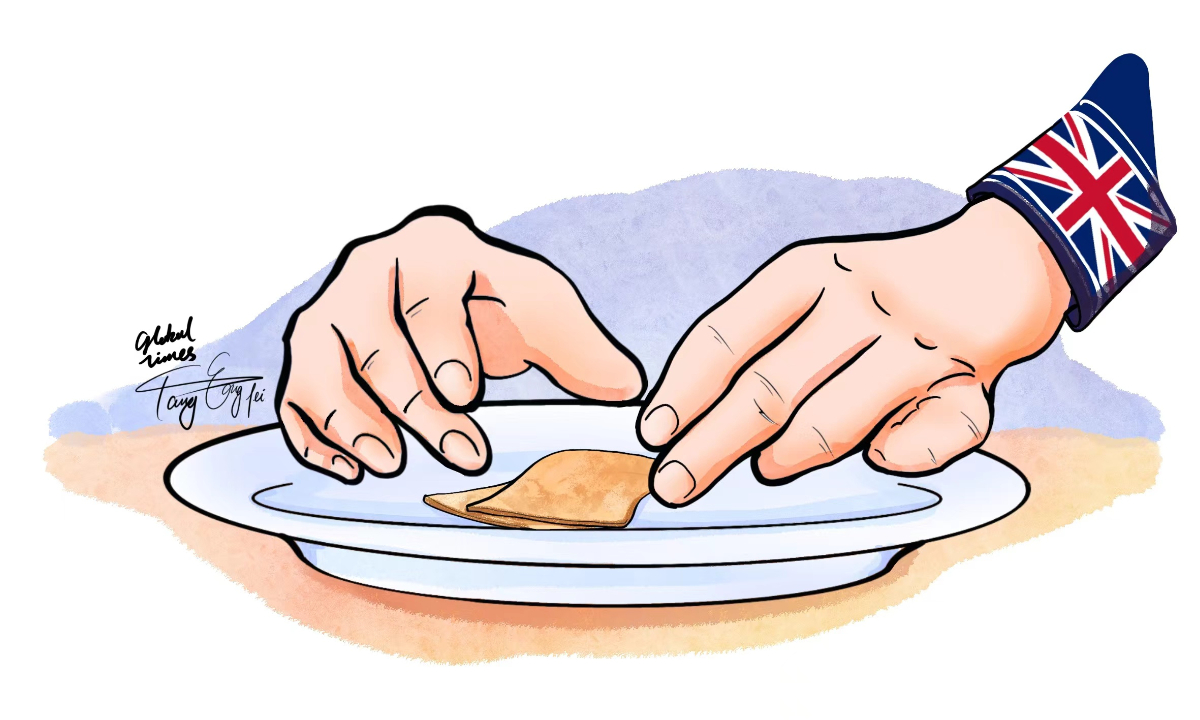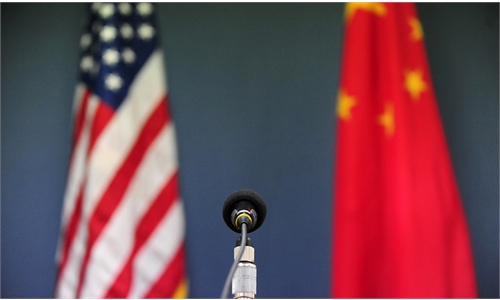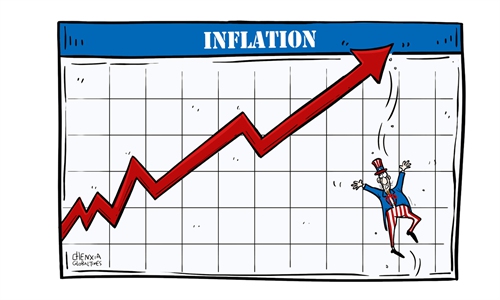
Illustration: Tang Tengfei/Global Times
Britain’s annual inflation rate surged in April to a 40-year high, escalating the country’s cost-of-living crisis. The 9-percent rise in the consumer price index (CPI) outstripped the 7-percent increase posted in March and well ahead of the 6.2-percent seen in February.
With the four-decade surging inflation, many have turned their attention to what measures will be taken by the British government to help people who are struggling with the inflated cost of living, which has risen dramatically and is expected to continue to rise in the second half of the year.
First, the economic logic leading to Britain’s high inflation should be figured out. A big rise in food and fuel prices as a result of the Russia-Ukraine conflict has pushed up the cost of living, but we should not attribute inflation entirely to the conflict. High inflation can be the result of multiple factors. Some of Britain’s inflation problems stem from Brexit, and this explains why Britain’s inflation rate is higher than that of many EU countries which rely more on energy and grain supplies from Russia and Ukraine.
For many British importers, the increase of transportation costs caused by Brexit is a source of daily concern. Since Brexit, the UK has had the freedom to pursue its own trade deals but has made sluggish progress in developing trade talks with some Asia-Pacific countries.
One question worth considering is how to cut the prices of imported goods from Britain’s major trade partners in the Asia-Pacific region by scrapping tariffs and removing other trade barriers. However, it depends on two-way efforts in which Britain should also provide an open and fair environment for foreign enterprises and eliminate the security review targeting foreign investment.
The UK has strong trade ties with many countries in the Asia-Pacific region. For instance, China replaced Germany as the UK’s biggest import market for the first time in the first quarter of 2021. Efforts to forge closer trade links with Asia-Pacific economies including China can help Britian cut prices of imported goods and control inflation, effectively.
As the cost-of-living rises, the poorest in the society suffer the most in Britain. Citing a survey revealing the impact of the cost-of-living crisis, The Guardian reported on May 9 that more than 2 million adults in the UK have gone without food for a whole day during the past month, just because they cannot afford to eat. It’s hard to believe this scenario is occurring in Britain. The country, once beamed as “the sun never sets”, is no longer the great empire it used to be.
While tackling inflation, the most urgent task for London is to boost income levels for vulnerable groups and the disadvantaged. Although the economy grew 0.8 percent for the first quarter this year, many are pessimistic about the country's future growth perspective.
The challenge facing London is to find new drivers of growth to increase the disposable income for ordinary Britons while tighten monetary policy to manage inflation. It’s a tough time, and we hope efforts to reemphasize free trade and globalization can be one option to get through the difficulties.
Currently, the US may want Britain and its allies in Europe to coordinate with its pivot to the so-called Indo-Pacific region and increase pressure on China. Britain should not fall into the trap. Britain 's primary strategy is to promote economic and social development and it will be an optimal result if the country can strengthen economic and trade cooperation with the US and China at the same time.
The author is a reporter with the Global Times. bizopinion@globaltimes.com.cn



